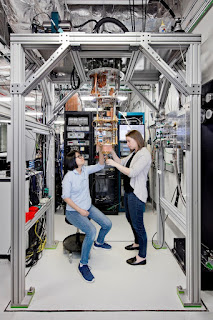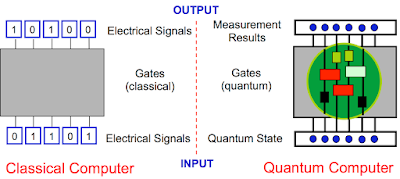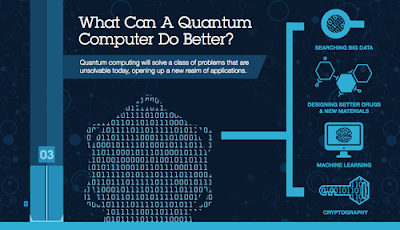Twitter Feed
Amazon’s Jeff Bezos on Cloud Computing
Amazon’s Jeff Bezos on Cloud Computing How and when Amazon began its cloud computing effort.Why Amazon has become an innovator with Amazon Web Services and how it relates to their…
Dataline, IBM, Google, Northrop Grumman on Cloud Computing
My company, Dataline LLC, in cooperation with IBM, Google and Northrop Grumman Mission Systems, is sponsoring an educational series entitled “Cloud Computing in a Netcentric Environment“. The series will be…
EMC Studies Cloud Computing Security
Storage firm EMC has joined the Daoli Trusted Infrastructure Project which conducts research into “trust and assurance” in cloud computing environments. The team’s research will focus on cloud computing, trusted…
The Cloud Computing Marketplace
For explaination and details see Understanding the Cloud Computing/SaaS/PaaS markets: a Map of the Players in the Industry by Peter Laird, Kent Dickson, and Steve Bobrowski from Oracle. Update: Please…
Key cloud computing concerns by CXO’s
Key cloud computing concerns by CXO’s attending the Enterprise 2.0 Conference in Boston were addresed in a June 9th panel of executives from Google, Amazon Web Services (AWS), and Salesforce.com.…
IBM Cloud Computing Center
On June 5th, IBM announced it will establish the first Cloud Computing Center for software companies in China, which will be situated at the new Wuxi Tai Hu New Town…
EUCALYPTUS – An Open Source Cloud Computing Platform
Elastic Utility Computing Architecture for Linking Your Programs To Useful Systems (EUCALYPTUS) is a new project that seems to be trying to put an “open source” flavor to cloud computing.…
The Honorable John G. Grimes Speaks about Cloud Computing
Today I had the pleasure of hearing The Honorable John G. Grimes, Assistant Secretary of Defense for Networks and Information Intergration and Department of Defense CIO, speak on some key…
Amazon leads Google into the cloud (So what else is new)
In this May 1, 2008 Globe and Mail Update article, Mathew Ingram provides an excellent comparison of Amazon and Google’s cloud computing initiatives. Bottom line: Amazon leads the pack with…
Web 2.0 Expo – What is Cloud Computing?
For some interesting views, take a look at these video interviews on what is cloud computing. These were done during the recent Web 2.0 Expo, April 22-25 in San Francisco,…
- The release of a new API (Application Program Interface) for the IBM Quantum Experience that enables developers and programmers to begin building interfaces between its existing five quantum bit (qubit) cloud-based quantum computer and classical computers, without needing a deep background in quantum physics.
- The release of an upgraded simulator on the IBM Quantum Experience that can model circuits with up to 20 qubits. In the first half of 2017, IBM plans to release a full SDK (Software Development Kit) on the IBM Quantum Experience for users to build simple quantum applications and software programs.
The IBM Quantum Experience enables anyone to connect to IBM’s quantum processor via the IBM Cloud, to run algorithms and experiments, work with the individual quantum bits, and explore tutorials and simulations around what might be possible with quantum computing. Since its launch less than a year ago, about 40,000 users have run over 275,000 experiments on the IBM Quantum Experience. It has become an enablement tool for scientists in over 100 countries and, to date, 15 third-party research papers have been posted to arXiv with five published in leading journals based on experiments run on the Quantum Experience.
 The broad availability of quantum computing capability could prove to be a significant blow to current data encryption practices. In 2015 the US National Security Agency actually advised US agencies and businesses to prepare for a time when the cryptography protecting virtually all e-mail, medical and financial records, and online transactions would be rendered obsolete by quantum computing. The US National Institute for Standards and Technology (NIST) is also running a competition to spur work on post-quantum algorithms.
The broad availability of quantum computing capability could prove to be a significant blow to current data encryption practices. In 2015 the US National Security Agency actually advised US agencies and businesses to prepare for a time when the cryptography protecting virtually all e-mail, medical and financial records, and online transactions would be rendered obsolete by quantum computing. The US National Institute for Standards and Technology (NIST) is also running a competition to spur work on post-quantum algorithms. - Drug and Materials Discovery: Untangling the complexity of molecular and chemical interactions leading to the discovery of new medicines and materials;
- Supply Chain & Logistics: Finding the optimal path across global systems of systems for ultra-efficient logistics and supply chains, such as optimizing fleet operations for deliveries during the holiday season;
- Financial Services: Finding new ways to model financial data and isolating key global risk factors to make better investments;
- Artificial Intelligence: Making facets of artificial intelligence such as machine learning much more powerful when data sets can be too big such as searching images or video; or
- Cloud Security: Making cloud computing more secure by using the laws of quantum physics to enhance private data safety.
This content is being syndicated through multiple channels. The opinions expressed are solely those of the author and do not represent the views of GovCloud Network, GovCloud Network Partners or any other corporation or organization.
( Thank you. If you enjoyed this article, get free updates by email or RSS – © Copyright Kevin L. Jackson 2017)
Cloud Computing
- CPUcoin Expands CPU/GPU Power Sharing with Cudo Ventures Enterprise Network Partnership
- CPUcoin Expands CPU/GPU Power Sharing with Cudo Ventures Enterprise Network Partnership
- Route1 Announces Q2 2019 Financial Results
- CPUcoin Expands CPU/GPU Power Sharing with Cudo Ventures Enterprise Network Partnership
- ChannelAdvisor to Present at the D.A. Davidson 18th Annual Technology Conference
Cybersecurity
- Route1 Announces Q2 2019 Financial Results
- FIRST US BANCSHARES, INC. DECLARES CASH DIVIDEND
- Business Continuity Management Planning Solution Market is Expected to Grow ~ US$ 1.6 Bn by the end of 2029 - PMR
- Atos delivers Quantum-Learning-as-a-Service to Xofia to enable artificial intelligence solutions
- New Ares IoT Botnet discovered on Android OS based Set-Top Boxes




